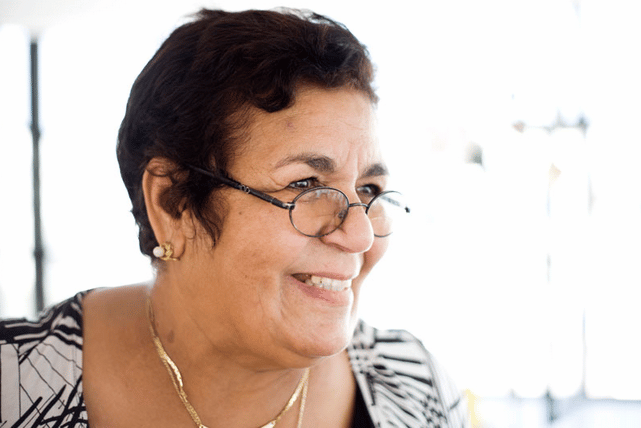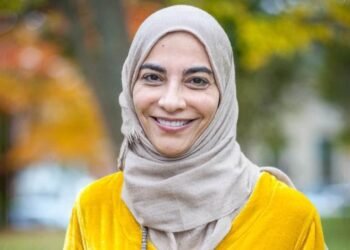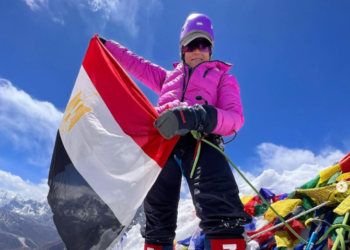In 1985, a single mother in Casablanca walked into a small community center clutching her toddler. She had no job, no support, and no hope—until she met a nurse-turned-activist determined to rewrite women’s futures. This was the spark that ignited Aicha Chenna’s legacy.
Born in 1941, Chenna faced hardship early. Her father died when she was young, leaving her family struggling. But those challenges fueled her resolve. By age 44, she transformed her pain into purpose by founding the Association Solidarité Féminine. What began as a humble effort to feed mothers and children grew into life-changing programs teaching vocational skills like cooking and childcare.
Chenna’s work didn’t stop there. As a nurse and social worker, she fought stigma against single mothers, creating safe spaces where women could rebuild their lives. Her stories of resilience—from battling school discrimination to raising her own family—inspired generations.
This article explores how one woman’s vision sparked a movement. Discover how her association empowered thousands, why she earned global recognition like the 2009 Opus Prize, and what her journey teaches us about turning adversity into action.
Key Takeaways
- Aicha Chenna transformed personal hardships into a lifelong mission to support marginalized women and children.
- Her organization, Association Solidarité Féminine, provided vocational training and resources for single mothers since 1985.
- Chenna’s background as a nurse and social worker shaped her compassionate approach to activism.
- She challenged cultural stigmas by creating safe spaces for women to learn skills like cooking and childcare.
- Her work earned international recognition, including the prestigious Opus Prize.
- Chenna’s story demonstrates how resilience and community focus can create lasting social change.
Life and Early Influences
Growing up in 1940s Marrakesh, hardship became this activist’s first teacher. At three years old, she lost her father—a tragedy that left her family scrambling to survive. Her mother made bold choices, even selling heirlooms to fund her daughter’s education in Casablanca.
Childhood, Education, and Family Challenges
Attending a French-language school defied local norms. Many girls her age stayed home, but she walked miles daily to learn. “Education was our weapon,” she later recalled, crediting her mother’s grit for this opportunity.
Teen years brought new responsibilities. By 16, she worked at a hospital—mopping floors and comforting patients. These early job experiences showed her how poverty impacted women and children firsthand.
Early Professional Journey and First Steps in Social Work
Nursing school sharpened her skills in caregiving. She joined public health programs, teaching hygiene in rural areas. This work revealed systemic gaps in supporting struggling families.
Each challenge—from schoolyard taunts to 18-hour shifts—fueled her resolve. These formative years built the bridge between personal pain and professional purpose, shaping a leader who’d redefine women’s rights in Morocco.
Aicha Chenna: Championing Social Work and Women’s Rights
A small basement in Casablanca became the birthplace of hope for countless women in 1985. Here, the activist launched Association Solidarité Féminine, offering vocational programs like cooking and childcare training. Its mission? To equip single mothers with skills for economic independence while protecting abandoned children.

Founding Association Solidarité Féminine
The organization started with three core principles: shelter, education, and dignity. Many beneficiaries arrived with harrowing stories—teen mothers shunned by families, survivors of abuse. Through workshops and counseling, they learned to reclaim their rights and rebuild their life.
Breaking Social Taboos and Advocating Family Planning
Chenna shattered silence around family planning at a time when few dared. She hosted radio shows explaining reproductive health, calling it “work that saves futures.” Her boldness drew criticism but also global recognition, including the 2009 Opus Prize for humanitarian efforts.
By 2010, over 50,000 women had gained job placements through her association. These programs didn’t just teach trades—they rewrote societal rules, proving women could thrive when given tools and trust.
Transformative Programs and Community Impact
Kitchens became classrooms where single mothers learned to turn flour into futures. The Association Solidarité Féminine didn’t just teach recipes—it baked resilience into every lesson. Through vocational training and community support, marginalized women reshaped their place in Moroccan society.

Vocational Training and Economic Independence for Single Mothers
Three-month courses in cooking, sewing, and accounting transformed lives. Graduates ran bakeries and childcare centers, earning incomes while caring for their children. “Our kitchens became bridges to dignity,” one participant shared.
The organization’s daycare centers let mothers attend classes worry-free. By 2005, over 80% of graduates secured stable jobs—a radical shift for women once labeled outcasts.
Media Engagement, Legal Reforms, and Social Inclusion
Radio shows broke taboos around marriage and parenthood. The activist’s bold discussions influenced Morocco’s 2004 family law reforms, granting women greater rights in divorce and custody cases.
Her team also launched street campaigns with posters stating: “Every mother deserves a seat at society’s table.” These efforts softened public attitudes toward children born out of wedlock.
Recognition, Awards, and Global Influence
The Opus Prize in 2009 spotlighted her model’s success. King Mohammed VI praised the programs as “blueprints for social change.” Today, similar initiatives operate across North Africa, proving sustainable solutions start with community trust.
One award juror noted: “This center didn’t just feed families—it nourished Moroccan society’s conscience.” From Casablanca to global stages, the Solidarité Féminine legacy keeps growing.
Conclusion
When the visionary activist passed in September 2022, she left a blueprint for turning compassion into action. Her 40-year journey with Association Solidarité Féminine redefined support systems for single mothers, proving dignity grows where communities invest in women’s potential.
Today, the center’s vocational programs still thrive, breaking cycles of poverty through services like childcare and job training. Legal reforms on marriage and wedlock—once unthinkable—now reflect her relentless advocacy.
As a nurse and trailblazer, she showed how care extends beyond medicine. Her awards recognized not just one woman’s courage, but society’s capacity to evolve. Thousands of mothers now stand taller because she refused to let shame define their stories.
Her legacy whispers a challenge: build bridges, not barriers. Support those rewriting their futures. For in lifting women and babies once hidden in shadows, we light the path toward true solidarity.





